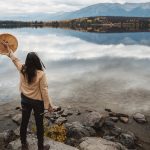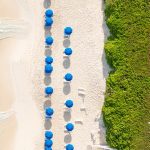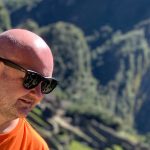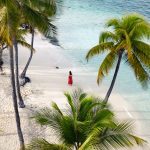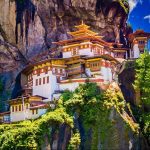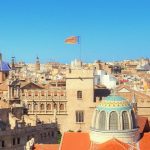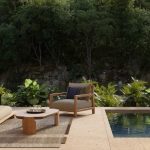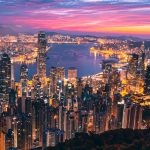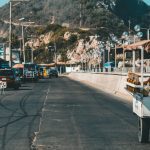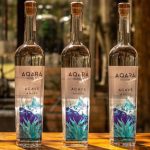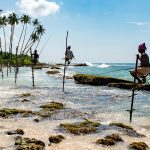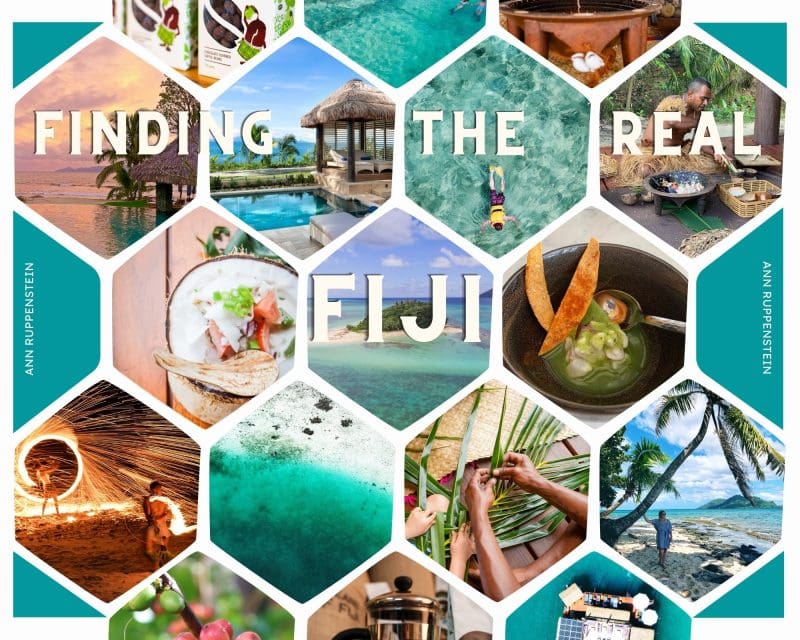
The founding values behind Bula Coffee — a coffee production company in Fiji — extend far beyond providing a good cup of morning joe. As Luke Fryett, whose job title cleverly reads ‘Man on the Ground,’ explains, while giving the world a great shot of coffee, Bula Coffee is “all about giving Fijians a better shot at life.”
What started out over a decade ago as a small enterprise working with one family in one village in Fiji has since expanded across 38 villages to buying coffee off of 5,000 people annually — a significant number of Fijians who now have additional sources of revenue.
“It’s more than money — we exist to give people a hand up — to give people a better shot at life,” he said. “To give people access to education, to give them financial independence. Money matters, but it’s more than money. We are changing lives one cup at a time.”
More recently, Bula Coffee launched the Crop to Cup Coffee Tour, giving travellers “the chance to not only taste Fiji’s wild harvest coffee and see how we process it, but also the chance to become a part of our story, becoming invested in our work and becoming part of the change we are making in Fiji.”
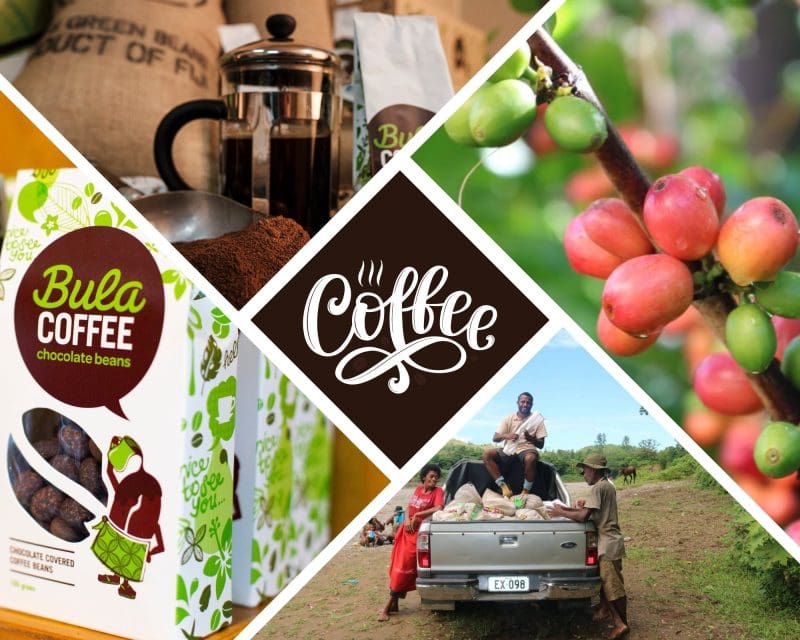
Along with learning about how to get a coffee cherry ready for a morning brew, visitors will be able to learn about how every cup of coffee can make a difference in the local economy. One example of how getting involved in the coffee business has made a positive impact is in a local community where kids would get to their boarding school by floating down the river in a tire — often getting soaked in the process.
“They used their coffee money to buy every kid in the village a waterproof bag, and a small cooker, so now the older kids can cook for the younger kids, during the week,” he said. “They also built a much better raft with tires all around it secured properly so the kids can keep dry… This is why money matters, but it’s more than money. It’s about empowering communities to keep their kids safe, to keep them dry, to let them have food during the week. Allowing the kids to focus better at school because they aren’t hungry, aren’t worried about their wet clothes. This is why every cup counts.”
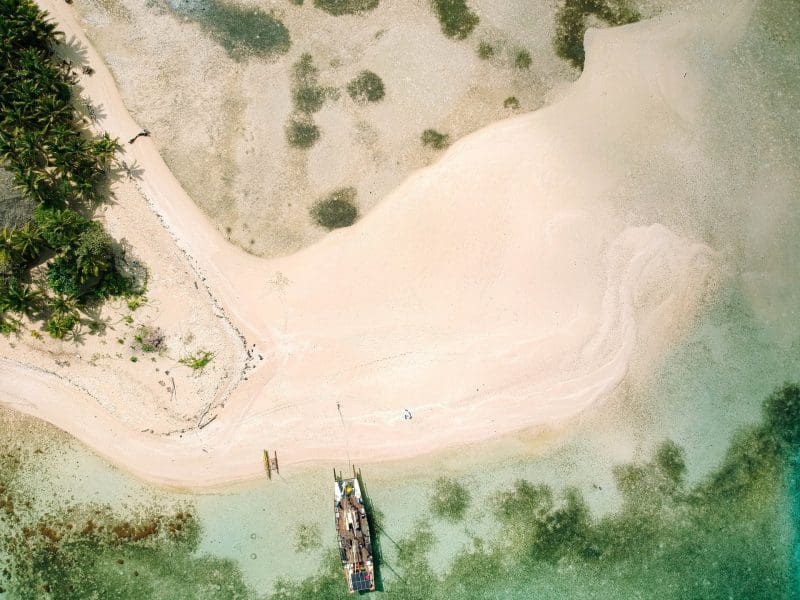
With Bula Coffee being one example, Tourism Fiji’s CEO Brent Hill notes that sustainability and supporting the development of meaningful experiences in the destination are two key corporate priorities going forward.
“We’re very conscious of how tourism actually contributes to local life,” he shared. “I really want people to leave the resorts — you start to really experience what Fiji is all about.”
Even the national carrier is making efforts when it comes to sustainability. Along with operational efficiency and having meals served in biodegradable containers, Fiji Airways is also offsetting its carbon footprint with the ‘A Tree For Every Take Off’ initiative. The airline has planted 55,000 mangroves to date and is targeting another 50,000 over the course of this year.
“We’ve been here for 70 years… We want to be able to say we’ve left a legacy as an airline,” said Akuila Batiweti, executive manager, digital and marketing for Fiji Airways. “Fiji is our home.”
For travellers who want to take it one step further, Fiji Airways is set to launch a new day trip in June where customers will be able to go out and help plant mangroves to offset their carbon footprint.
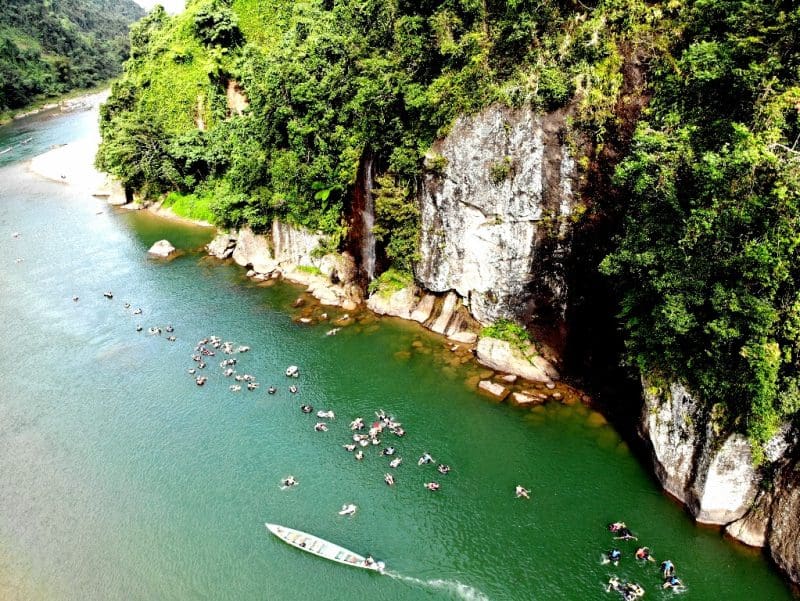
For clients who are interested in supporting local ventures, Fiji also has its own sustainable tourism collective called Duavata, comprised of 15 like minded members who share the same ideas and values around “how tourism should enhance cultural heritage and the environment.”
From hiking operators and ecological accommodations to cocoa farming, its members are focused on enhancing experiences within local communities, the environment and culture.
“We’re seeing a real shift in why they’re travelling and connecting with people in a more meaningful way,” noted member Marita Manley, who is also the director of hiking company Talanoa Treks. “A lot of the experiences we offer are windows into reality… We’re showcasing a part of Fiji that’s not often on people’s main itinerary.”
Notably, Manley said Intrepid Travel launched an eight-day Fiji itinerary, Fiji Adventure, which includes visits and “authentic experiences” with multiple members of the Duavata collective.
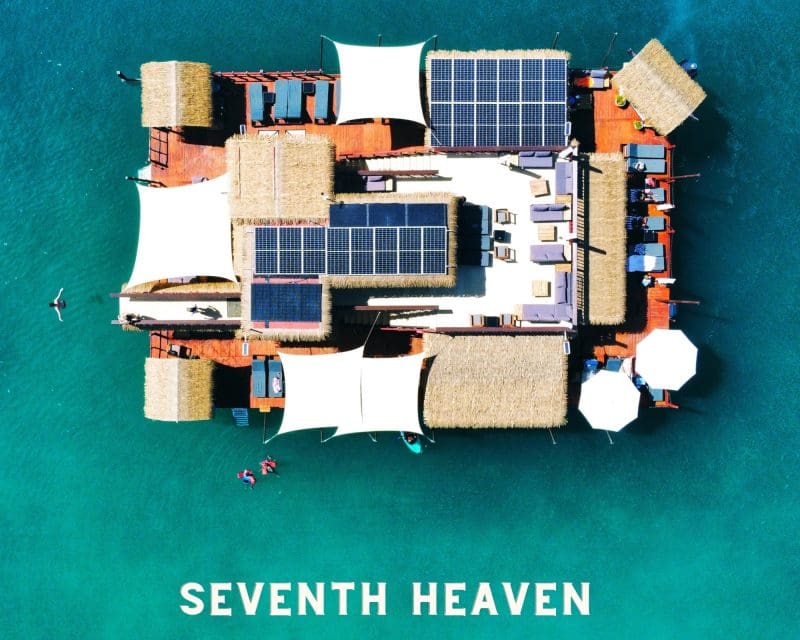
On the sustainability side, Eddy Rotteveel, the owner of a new solar powered floating bar and restaurant in the Mamanuca Islands, revealed that the idea for Seventh Heaven was hatched during a brainstorming session over several Fiji Gold beers.
Located 45 minutes away from Port Denarau, the overwater lounge includes snorkelling gear and stand up paddleboards. Dare devils can opt to jump off the Leap of Faith, a five metre high lookout from the top deck.
“We think we’ve created something that makes people smile,” he said, explaining how the venture went from a concept on a beer coaster while on vacation from New Zealand to a reality. “It’s a bucket list experience.”
Being “Open for Happiness” is the slogan of Tourism Fiji’s current campaign, which features a video with actress Rebel Wilson, launched as the destination reopened its borders without quarantine in December. The video resonated with travellers, receiving over 26 million views to date.
“We knew we had to do something that shook the market in terms of telling the world that we were open. Happiness was our DNA so Open for Happiness was the real obvious one,” said Hill. “I think that just struck a chord. Everyone’s like, I’m so unhappy so a place that was advertising happiness was going to work well… The one thing that came through was that it was a really genuine experience for her.”
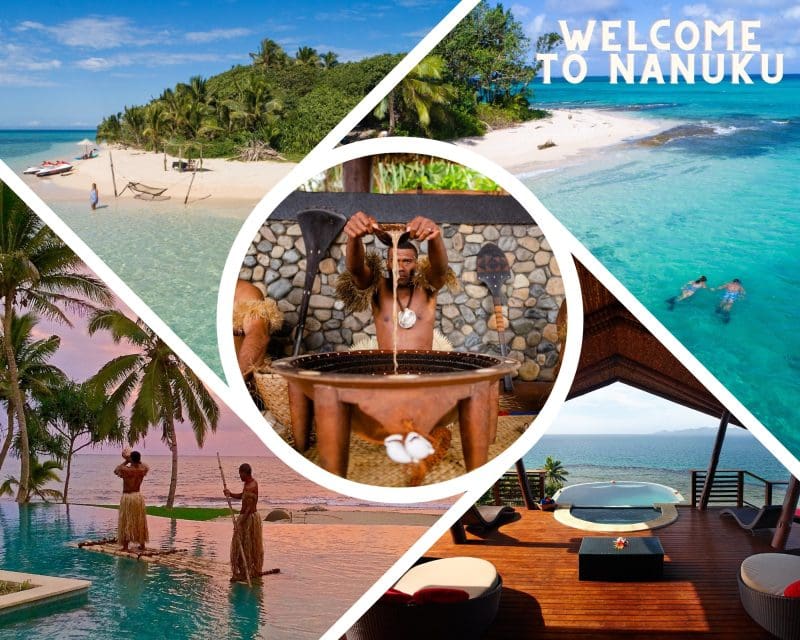
Checking into Nanuku Resort
“Bula Ann” reads the personalized welcome message formed from rocks at the bottom of my private plunge pool after checking in at Nanuku Resort. But Bula, a Fijian greeting meaning hello/welcome, extends beyond the monogrammed pool to the sense of welcome from staff that kicks off upon arrival with a warrior welcome.
Located on Fiji’s main island of Viti Levu, Nanuku Resort hones in on the cultural elements that make Fiji a unique destination from Kava ceremonies (a popular drink in the South Pacific not to be confused with cava) to traditional cooking classes and fire walking ceremonies.
There are a range of memorable accommodation options to choose from, including the modern villas, newly opened in 2019, and the more traditional residences, which are expansive and are undergoing upgrades with new thatched roofing and refreshed interiors.
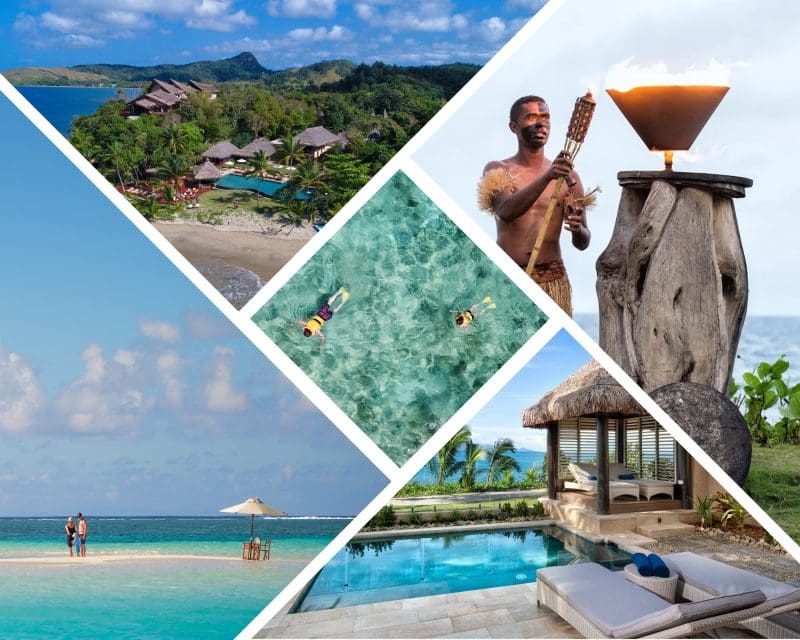
The resort runs a daily schedule of activities for guests like yoga sessions with Sisi Nasiga, a former Olympian wellness coach (if you’re lucky you’ll be the only one who registers to get a one-on-one training session on the beach) or hiking excursions to waterfalls. For a day trip to remember, travellers can’t go wrong spending time on Nanuku Island, the lush uninhabited island from where the property gets its name. Those who are so inclined can even opt to camp out for an evening under the stars.
For families: kids are assigned a Bula buddy to help keep them entertained and busy so that parents can truly enjoy some moments of calm during their stay.
While the resort is outstanding on all counts, what really sets it apart is the staff. From touches like having morning cappuccinos served with guest’s names to the team gathering to sing for those who are departing, Nanuku Resort is bound to leave a lasting impression on travellers and will have them wanting to come back.
Photos courtesy of Fiji Tourism, Nanuku Resort and Ann Ruppenstein.
Bula Coffee works with Rosie Holidays and will offer agents 20% commission on tour bookings.


